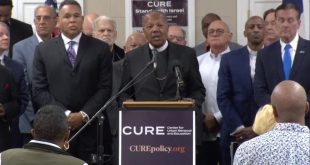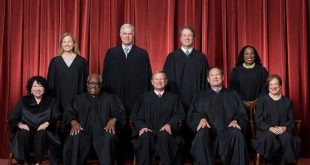The U.S. Supreme Court unanimously ruled in favor of Catholic Social Services (CSS) in Fulton v. Philadelphia. The city had ended its 50-year contract with CSS and refused to extend it because CSS declined to certify homosexual couples as foster families.
“Government fails to act neutrally when it proceeds in a manner intolerant of religious beliefs or restricts practices because of their religious nature,” Chief Justice John Roberts wrote. “CSS seeks only an accommodation that will allow it to continue serving the children of Philadelphia in a manner consistent with its religious beliefs; it does not seek to impose those beliefs on anyone else.”
The court held that the city’s non-discrimination requirement imposed a burden on CSS’s free exercise of religion and doesn’t qualify as a generally applicable provision. Sources have called the decision narrow. The court could have overturned Employment Division v. Smith (1990), a case the plaintiffs in the present case cited in their complaint.
In Smith, two members of an American Indian church smoked an illegal drug that was part of a religious ritual. The men, who were drug counselors, were fired. The Supreme Court ruled that the First Amendment’s religious protections didn’t immunize the men from the consequences of breaking criminal law. In his concurring opinion, Justice Samuel Alito wanted the court to re-examine Smith. Justice Clarence Thomas and Justice Neil Gorsuch joined his opinion.
Alliance Defending Freedom (ADF), which represents a Christian florist named Barronelle Stutzman and filed an amicus brief in Fulton, said the high court could provide “much-needed guidance to lower courts” if they rule in Stutzman’s favor. The Supreme Court agreed to take her case after she lost in the Washington Supreme Court. A homosexual “friend” asked her to arrange flowers for his “wedding” to another man. She declined on religious grounds and ended up in court. Her business and her life savings are at risk.
ADF said the court’s decision in Fulton “did not resolve the important legal questions presented in Stutzman’s petition currently before the Supreme Court…”
General Counsel Kristen Waggoner said they’re grateful for the decision in Fulton, “which unanimously vindicates that principle. And so now is the perfect time for the high court to address a religious freedom question that has been pending for years in Arlene’s Flowers, the case of Washington floral artist Barronelle Stutzman. She has waited far too long for justice—now is her time.”
In a recent column, Star Parker discussed the victory in Fulton but warned what will happen if Congress passes the Equality Act. The government could “shut down organizations insisting on biblical values.” The measure could make the Religious Freedom Restoration Act “null and void.”
“Lost would be the protections that saved Little Sisters of the Poor from being forced to provide abortifacients in their health care plan, as the Affordable Care Act required,” Star wrote. “Or protections from forcing a doctor or nurse to provide abortions services against their religious convictions. Or bakers, photographers or wedding planners forced to provides services for same-sex weddings against their religious convictions.”
 CURE News and Clergy Blog News and Commentary for Christians
CURE News and Clergy Blog News and Commentary for Christians



